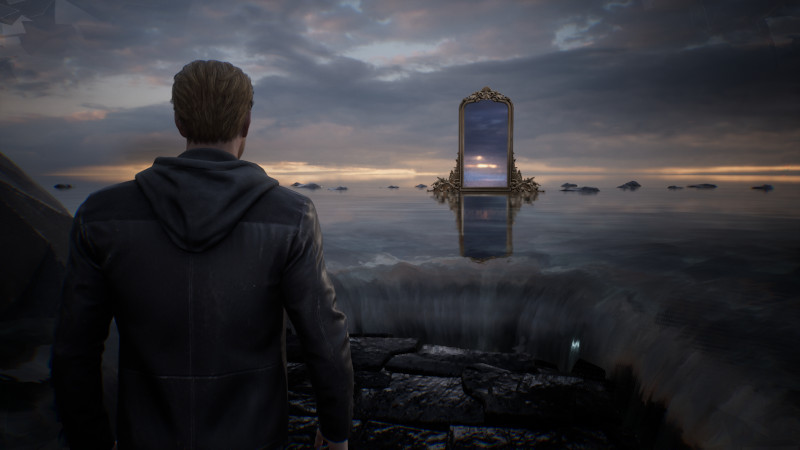Review: Twin Mirror
Twin Mirror from French video game developer Don’t Nod (Life is Strange) is set in Basswood, West Virginia, a fictional coal town at the brink of economic ruin. You play as Sam Higgs, an investigative reporter.
As a writer for the Basswood Jungle, you exposed unsafe labor practices at the local mine. Because this is a work of fiction, this led to the mine being shut down. Many of the locals blamed you for the resulting job losses. Add a failed relationship to the mix, and you had every reason to leave Basswood in the past.
The only reason you’re back in town is because of the death of your friend and former colleague, Nick. The official cause of death is a car accident, but Nick’s young daughter Joan suspects foul play and implores you to investigate. This is where the game presents you with your first choice: Do you promise Joan that you will look into it?
Like Don’t Nod’s other narrative adventure games, Twin Mirror is played from a third-person camera perspective. The game places you in various settings, many of which you can explore at your leisure before performing the required actions to advance to the next scene. In most cases, that involves solving simple puzzles. There are a couple of action and exploration sequences, but they require no significant player skill.

Long sequences of the game take place in Sam’s powerful imagination (Credit: Don’t Nod. Fair use.)
A rich inner life
Sam has an extraordinary mind. By focusing on a scene, he is able to rapidly piece together disparate clues into a coherent narrative. During these moments, the player is placed in Sam’s “mind palace”, a fragmented reflection of the real world. For example, Sam can imagine multiple versions of Nick’s car accident, until all the clues fit perfectly.
Sam’s inner life comes at a cost to those around him. Throughout the game, you must choose whether to steer Sam towards facts, or towards the people in his life. Central among them are Sam’s ex-girlfriend Anna, and Nick’s daughter Joan.
Twin Mirror is over in about 6 hours, making it one of Don’t Nod’s shortest titles. This isn’t enough time to get to know any of the characters except for Sam, whom some players may find difficult to relate to due to his social and emotional difficulties.
The game does offer the player meaningful choices, which can result in one of five endings. I was satisfied with the ending I received, and felt that it was consistent with my choices. As for the plot, let’s just say that no “mind palace” is required to solve the mysteries of what’s going on in Basswood.
The Verdict
Visually, the game is appealing, but it only offers a couple of genuinely interesting locales. Instead of exploring a vibrant world as in Life is Strange, you spend a lot of the game’s short runtime in Sam’s head.
I would still give the game a weak recommendation if you do like narrative adventure games. However, it is overpriced at its regular price of $30. It frequently plummets into the $5 range, and for fans of the genre, it’s worth picking up at that price.